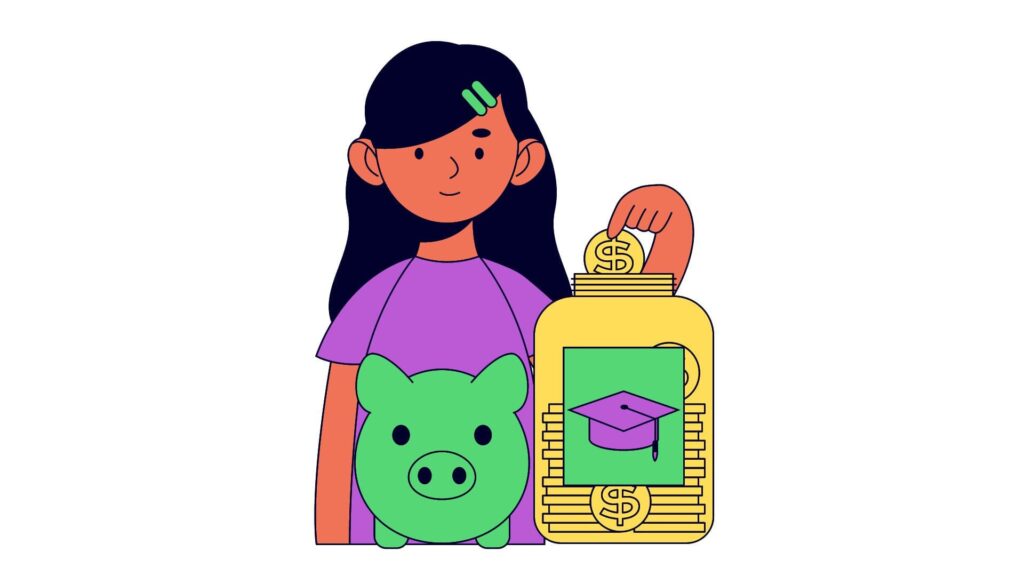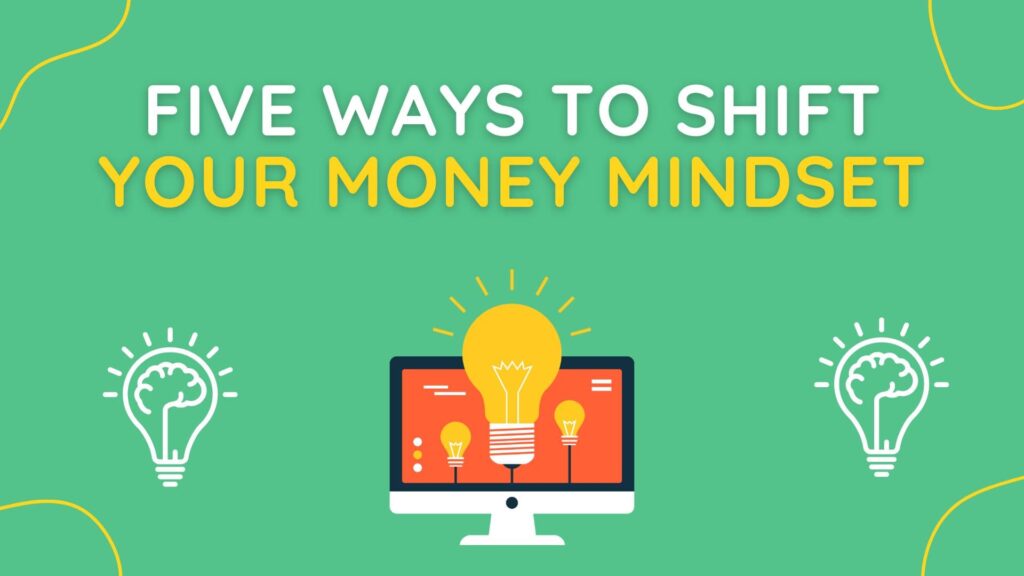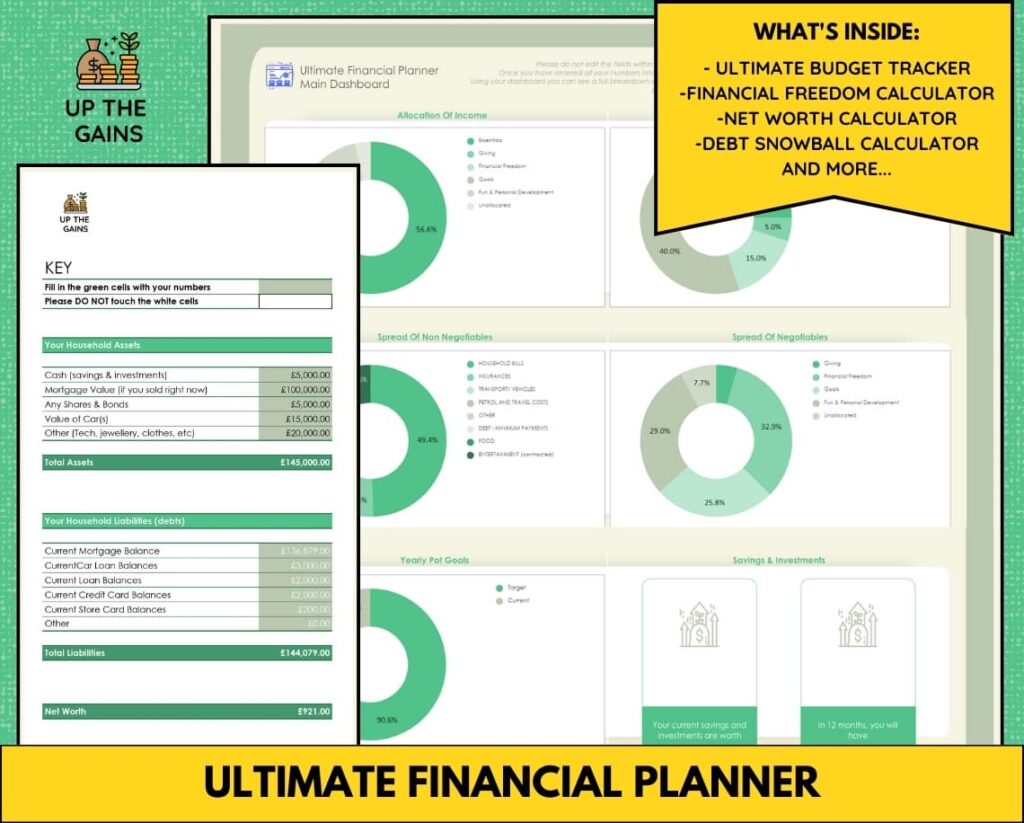
Rosemary Pearson
Rosemary Pearson is a freelance financial editor and writer with 12 years of experience. Her communications career includes writing roles at Coutts Bank and the fintech brand Scalable Capital. Rosemary is also studying for a degree in psychology.

Quickfire Roundup:
Taking control of your financial future begins with shifting into a positive money mindset.
Here are five top tips to get you thinking about your finances in the right way, from keeping track of how you spend money, to stopping thinking before you get your contactless out, and simply believing in yourself.
A few small changes today should put you on track to realising your future hopes and dreams.
The great thing about your money is that you hold the purse strings and total control of your spending.
But to get your month-end bank balance into the black, you will need to shift your money mindset.
A few small changes to the way you think about your spending can make a big difference. After all, as Tesco reminds us: every little helps.
Let’s unpack a few of our healthy money mindset tips.
Podcast Episode
Join us on this episode with Money Mindset Coach, Laura Moore from Mind Money Soul. We unpack how you can train your mind to develop good money habits and change your relationship with money with her money mindset tips.
Click the play button just below and listen to the episode while you peruse the rest of this article!
Table of Contents
Five ways to shift your money mindset
These five ways that we list out have allowed me to control my money, and keep a positive outlook on my financial situation.
Money mindset shifts can have such a huge impact on both your day-to-day life and long term financial goals.
1. Stop and think
We’ve all done it. Had a low day and decided to treat ourselves.
You saw a pretty dress in the sale and resisted it at first, but after you missed your train, got caught in the rain and arrived home two hours later than usual, bedraggled, and full of woe, you decided that you really do deserve that new dress after all.
One quick ‘add to basket’ later, and suddenly the rain clouds have lifted.
But as we all know that relief is only temporary and will be replaced with frustration and possibly guilt when the bank balance settles into the red (again) at the end of the month.
Past financial mistakes are exactly that. A thing of the past.
Money and mental health are however, inextricably linked. As the charity Mind points out, fear, shame, guilt and stress are just some of the feelings associated with our personal finances. Our spending can really bring us down.
Next time you think about cheering yourself up by adding to your wardrobe, stop and ask yourself, why am I really buying this? Do I really need it? Or is it just going to cause me pain and regret in a couple of weeks’ time?
Resisting temptation in the short term will do your mental health, and your bank balance, a favour in the long term. Honestly, this is one of the best ways to change your money mindset!
2. Keep track of your spending

Spreadsheets may not get everyone out of bed in the morning but when it comes to shifting your money mindset, they’re invaluable.
Not only will noting down every item you buy help you to keep track of where your money is going, but it will also help to impinge your spending on your consciousness.
Contactless cards can make you feel quite disconnected from your outgoings but if you go home and write it all down, you’ll suddenly feel extremely in touch with your spending decisions.
Using cash is another way to bring the realities of spending home. Handing over your hard-earned paper notes feels very different to the absent-minded contactless card wave.
According to a recent YouGov poll, 38% of adults in the UK find it easier to spend less money when using cash.
When I started tracking my monthly outgoings in a spreadsheet, I was staggered to see how much I spent on going out. And I don’t mean partying every weekend, just the odd round in a pub – it really adds up.
I use cash now and write it all down, and I’m pleased to report that that column has significantly shrunk.
OR you can use our free UK budgeting calculator which gives a basic overview of your monthly expenses.
3. Make a money plan
Try and shift your financial focus from short to long-term.
Paint yourself a picture of what you’d like your life to look like in 10 to 15 years time, according to your values, hopes and dreams. Then you can work out how you’re going to get there.
So instead of going big on your upcoming holiday, think about the type of holidays you’d like to be going on in future. Then you can work backwards and calculate what you can and can’t afford to spend now.
This exercise isn’t always depressing! Sometimes it turns out you can afford more now than you previously thought.
A financial plan is an important tool when it comes to shifting your money mindset. It helps you move away from the day-to-day splurges and gets you thinking about big-picture aspirations.
If bringing in your packed lunch every day means you can afford a bigger house in 10 years, you’re likely to make that tiny bit of extra effort. Having an achievable goal for your future is extremely motivating, and if you don’t have a map, you’ll never get there.
Use some of the best budgeting apps to help you.
4. Don’t just spend less, save it

It’s all very well trying to spend less, but if you’re not putting that saved money aside, you’ll probably end up spending it on something else.
You need to spend less and save it by opening a new bank account or opening an investment portfolio (see our articles about ISAs for more information).
Your savings need to be out of sight and out of mind to stop you from spending them in moments of weakness.
Also putting money into it each month that you don’t touch fosters good financial habits.
A recent survey found that 20% of Brits have no savings at all, a worrying statistic. But on average, we all have roughly £7,500 squirrelled away, and that’s an 11% increase since 2020. Reassuringly, almost 50% of Brits are making sure they’re saving for retirement.
It’s great to see so many are already putting their saved cash aside as this will help them achieve those long-term plans I talked about in point 3.
For anyone else, remember it isn’t just about spending less, it’s also about saving more. So, open a new account today and keep those savings separate.
5. You can do it
To truly change your money mindset, it’s crucial to start by believing in the power of positivity. Having an abundance mindset and believing you can achieve prosperity.
When you shift your perspective, viewing your financial goals as achievable milestones rather than insurmountable obstacles, you start to foster a money-saving mindset that can transform your approach to personal finance.
This shift is not just about making budget cuts or increasing your income; it’s about reprogramming how you interact with money on a fundamental level.
Remember, the journey to change your money mindset is a marathon, not a sprint. Implementing incremental changes to your daily habits can compound over time, leading to substantial growth in your savings.
Utilise the wealth of tools and resources available—budgeting apps, financial planning workshops, a money mindset course and community support groups all exist to support your mission.
Maintaining a money-saving mindset means celebrating small victories and staying resilient during setbacks.
That negative money mindset is a thing of the past!
Each step forward is progress, and each lesson learned is valuable. The most profound money mindset shift comes when you stay positive and remind yourself regularly: “You’ve got this.”
FAQs
I want to teach myself about money. Where do I start?
Right here! At Up The Gains. We try to make money simple to make sure that everyone can feel in control of their future.
If you’re new to this subject, it might be worth starting off by looking at our saving and budgeting articles before moving on to investing when you feel a bit more confident.
We also interview other money writers and thinkers on our podcast every week, so you should always be able to pick up a tip of two from them.
Surely, there’s more to it than just changing my money mindset?
Changing your money mindset is a very good place to start. You can’t make a change in your life without a change in your mindset.
It takes plenty of hard work and discipline to realise your financial dreams, but the right mindset will make that all much easier. Just think in small steps rather than giant leaps.
But it all seems so easy for my friends?
It isn’t! Trust me. No one gets away with having zero money worries ever and comparing yourself to others gets you nowhere anyway.
Your friends are probably all trying to make the same changes you are, with similar long-term goals, but they just may not be sharing their struggles and concerns with you.
Money can still be a taboo subject which is why we try to shout about it as much as possible! Greater awareness and story sharing means we all learn from each other, and we all help each other realise our dreams.
Conclusion
If you’re reading this article at the end of the month, thinking I’m broke, with your bank balance flirting with the red, the idea of straightening your finances out may seem extremely daunting.
But by gradually implementing these key shifts in your money mindset, you may be staring at a very different-looking bank balance in no time.
From now on, your spending habits will be tracked and analysed with savings transferred into a separate account, all for the sake of your financial goals.
It may not be the whole answer, but a change to your money mindset will bring you much closer to your long-term hopes and dreams.
Share on social media
Disclaimer: Content on this page is for informational purposes and does not constitute financial advice. Always do your own research before making a financially related decision.



